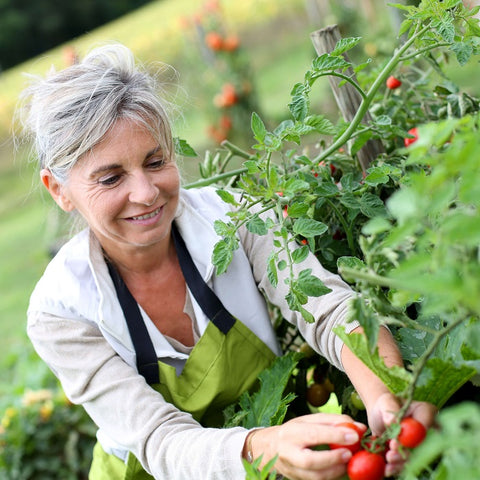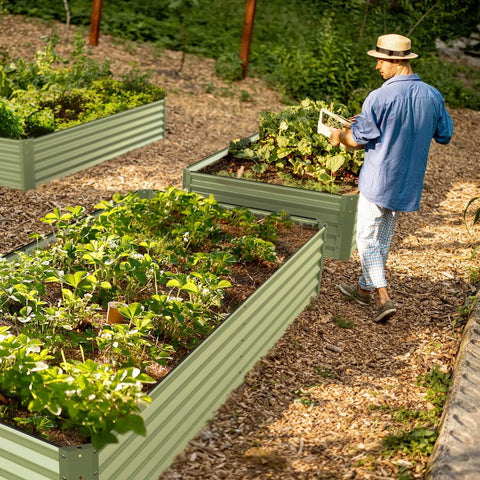Growing vegetables is an enjoyable and healthy activity, but for beginners, mistakes can often be made. These errors can affect the growth and yield of vegetables. Here are some common veggie growing mistakes that beginners make, and how to avoid them.The following content also has some reference value for raised garden beds.
Not understanding soil conditions: Soil is the foundation of vegetable growth, and the importance of soil is often overlooked by beginners. Different vegetables have different requirements for soil texture, pH and nutrient requirements. Before planting, know your soil type and conduct soil tests to determine its pH and nutrient content. Adjust the pH of the soil according to the test results and apply appropriate organic fertilizers to improve the soil texture and provide the required nutrients.
Over or under watering: Moisture is one of the key factors in vegetable growth. Beginners often make watering mistakes. After watering more vegetables will generally appear as follows: long, crazy stem long, long legs.
Leaves yellow, a lot of people mistakenly think is lack of fertilizer, but actually in the seedling stage will rarely have a lack of fertilizer, most of the water is big. Rotted roots: When you dig up a dead plant and find that the roots have rotted away. Insufficient watering can lead to poor growth of vegetables. Learn about the watering needs of different vegetables, and pay attention to soil moisture and plant leaves to determine when and how much to water.

Improper plant density: In a vegetable garden, the distance between plants is very important. Novices often plant plants too crowded, resulting in inadequate growth and development. Each vegetable has appropriate plant density requirements, know and follow these requirements to ensure that each plant gets adequate sunlight and air circulation.
The wrong way to fertilize: Fertilize to provide essential nutrients for vegetables. Novices often over-fertilize or inappropriately, which can lead to excessive hypertrophy, nutritional imbalance, or the growth of pests and diseases. Understand the fertilization requirements of different vegetables and the appropriate fertilization schedule, and choose the appropriate organic fertilizer for fertilization.

Neglect of pest management: Pests and diseases in vegetable gardens are a common problem, and beginners often neglect their prevention and management. Inspect the plant regularly and note any unusual leaves and insects
A lesion or lesion. Control pests by adopting appropriate control measures such as catching them by hand, using organic insecticides or introducing beneficial insects.
Lack of regular pruning and finishing: Regular pruning and finishing is key to promoting vegetable growth and yield. Novices often neglect to prune overgrown branches, weeds and diseased leaves, which can affect plant health and yield. Keep your vegetable garden clean and tidy by regularly trimming and removing unwanted plant parts.
Improper planting season: There is a proper planting season for every vegetable, and novices often plant certain vegetables at the wrong time. Know the best planting season for each type of vegetable and arrange according to local climate conditions.

Growing vegetables takes patience and experience, but avoiding these common mistakes can improve your chances of growing successfully. Learning to understand soil, watering, plant density, fertilization, pest management, pruning, and proper planting seasons are the keys to becoming a successful vegetable gardener. By gaining experience and communicating with other gardening enthusiasts, you will be able to continuously improve your skills and reap a rich vegetable harvest. I wish you success in vegetable growing!









